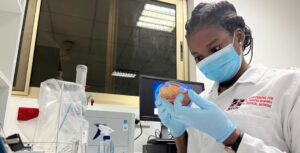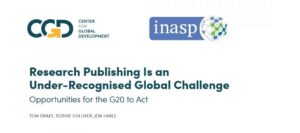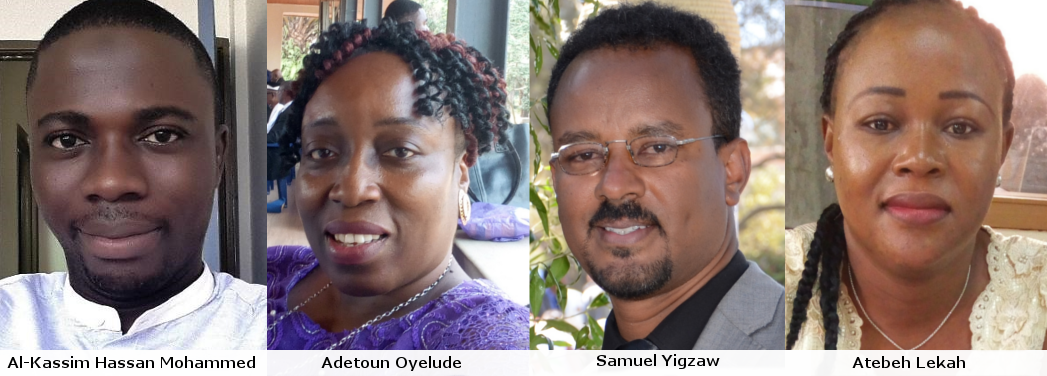
AuthorAID MOOC participants reflect on important and inspiring takeaways from the course
Samuel Yigzaw, Adetoun Oyelude, Al-Kassim Hassan Mohammed and Atebeh Lekah are four participants from AuthorAID’s recent MOOC on research communication. In this post, they share some of the useful lessons they learned from the online course, and explain how they will use the knowledge they developed to advance their research careers.
Why did you sign up for AuthorAID’s research communication MOOC?
Samuel Yigzaw: I learnt more about AuthorAID through the eLearning Africa 2017 conference in Mauritius. I decided to register for this course as it was well-suited to my career needs.
Adetoun Oyelude: I signed up to be able to improve my research skills.
Al-Kassim Hassan Mohammed: I was excited about the opportunity to learn and share research experiences with students and experts from diverse disciplines.
Atebeh Lekah: I signed up because I want to build a strong career in research. A good researcher is known by her number of publications, and the information in these publications can inform policy and contribute to development. I have never published a paper, and each time I tried, I felt discouraged. I was scared of rejection. I decided to take the course to be able to better understand how to publish a scientific research paper.
What are your biggest challenges as a researcher, and what are your most pressing training needs?
Samuel Yigzaw: My main challenge is limited access to relevant articles in my field, as many journals require subscriptions, which is not yet possible in Eritrea. Moreover, as we do not have online payment tools in Eritrea, I am restricted to publishing my work in journals that do not require a publishing fee. In terms of training, I hope to do more great courses like AuthorAID’s MOOC going forward.
Adetoun Oyelude: My challenges include finding relevant literature, publishing my research results and obtaining research funding. My biggest training needs are in research methodology and statistical analysis.
Al-Kassim Hassan Mohammed: Challenges include lack of funding, organization and mentorship. My biggest needs include provision of funds, adequate supervision, state-of-the-art facilities and a conducive environment in which to carry out my work.
Atebeh Lekah: It is challenging to access important literature to inform my research (due to subscription barriers or lack of funds to pay for access to articles). Also, it is difficult to choose the right journal in which to publish my work. Also, it is very difficult to conduct research without financial support from an external source, like my institution or a funding organization. This discourages me and slows down my research activity. Thankfully, the AuthorAID course has really helped me to overcome the first two challenges.
Can you describe what you got out of the MOOC course?
Samuel Yigzaw: The course has broadened my horizons at the start of my research career in Finland. It has taught me so much about the nature of research and research ethics, and I found it all amazingly interesting.
Adetoun Oyelude: It taught me how to conduct a thorough literature review and avoid plagiarism, as well as how to communicate research results in different formats. The best thing was interacting with others on the course, as well as the opportunity to mentor others and to be mentored too.
Al-Kassim Hassan Mohammed: It greatly improved my understanding of academic writing, publication ethics and research – and I will use the detailed notes I made going forward. Furthermore, it was great to communicate with all participants – to ask questions and get answers almost instantly. The best thing was learning about research publication and how to spot and avoid predatory journals.
Atebeh Lekah: The course enabled me to gain knowledge and build a huge amount of confidence in myself. I now feel equipped to work hard and see results. I am very pleased to say that I submitted my first peer-review paper for publication in December, and I hope the reviewer will find it worthy of publication.
How will the knowledge you have gained from this course help you going forward?
Samuel Yigzaw: The knowledge I got from this course has boosted my confidence as I begin studying for my PhD, and will remain with me for life.
Adetoun Oyelude: I am looking forward to applying the knowledge I gained on this course to improving my scholarly writing. I will definitely recommend the course to others.
Al-Kassim Hassan Mohammed: I will pass on the knowledge I have gained to my colleagues – and I will use it to inform my lessons with students. It will also feed into my daily research activities.
Atebeh Lekah: It will help me publish many scientific papers, and I intend to share the knowledge I have gained through a workshop with others in my institution. I am also planning to organize a research communication workshop to educate the Master’s students about the importance of publishing scientific articles at their level.
Finally, what do you see as the main advantages or disadvantages of online learning?
Samuel Yigzaw: Online courses are an incredible opportunity to reach many people, as they offer quality content with nominal costs. Although there are some advantages to in-person training, I believe the disadvantages of an online course are nothing compared to its benefits.
Adetoun Oyelude: It is great to be able to learn, no matter where you are located. The only challenge is double-checking timings to make sure deadlines are not missed due to time differences.
Al-Kassim Hassan Mohammed: Online learning affords effective participation from participants in real time. It enables you to learn at your convenience and schedule, and you can also multitask while learning. A huge amount of participants can learn at the same time.
Atebeh Lekah: There are many advantages. The course can be taken anywhere and at one’s convenience. It also helps participants to improve collaboration and networking. It is great to discuss and share ideas with many people that you have never met before. The only disadvantage is that internet connection problems can cause disruption.
————————
Samuel Yigzaw from Eritrea is the director of ICT & Tele-Education Center at the Eritrea Institute of Technology. He is currently doing a PhD at the University of Eastern Finland.
Adetoun Oyelude from Nigeria works and studies at the University of Ibadan. She is currently doing a doctoral thesis on the preservation of indigenous knowledge in cultural heritage institutions in Southern Nigeria.
Al-Kassim Hassan Mohammed is a PhD student and early career researcher/lecturer at Bayero University Kano, Nigeria. His research areas include pharmaceutical biotechnology, drug screening and cancer research.
Atebeh Lekah holds an MSc in Agroforestry from the University of Yaounde, Cameroon. She has worked as a librarian at the University of Yaounde for 10 years and is currently Head of Department of Evidence-Based Resources in the same institution. She conducts research in both Forestry and Library Sciences.

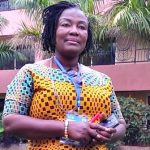 Previous Post
Previous Post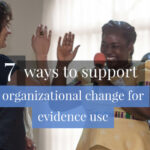 Next Post
Next Post